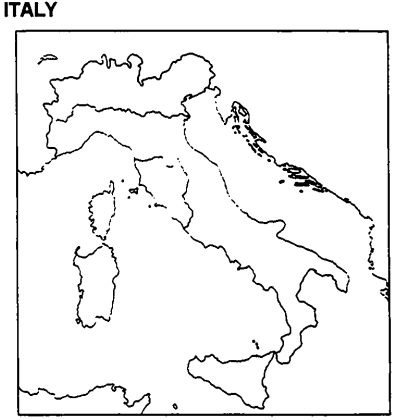Exam 13: The Renaissance: Transition to the Modern Age
Exam 1: The Ancient Near East: the First Civilizations87 Questions
Exam 2: The Hebrews: a New View of God and the Individual92 Questions
Exam 3: The Greek City-State: Democratic Politics78 Questions
Exam 4: Greek Thought: From Myth to Reason77 Questions
Exam 5: The Hellenistic Age: Cultural Diffusion79 Questions
Exam 6: The Roman Republic: City-State to World Empire76 Questions
Exam 7: The Roman Empire: a World-State91 Questions
Exam 8: Early Christianity: a World Religion79 Questions
Exam 9: The Heirs of Rome: Byzantium, Islam, and Latin Christendom97 Questions
Exam 10: The High Middle Ages: Vitality and Renewal83 Questions
Exam 11: The Flowering of Medieval Culture: the Christian Synthesis78 Questions
Exam 12: The Late Middle Ages: Crisis and Dissolution77 Questions
Exam 13: The Renaissance: Transition to the Modern Age89 Questions
Exam 14: The Reformation: the Shattering of Christian Unity85 Questions
Exam 15: European Expansion: Economic and Social Transformations89 Questions
Exam 16: The Rise of Sovereignty: Transition to the Modern State85 Questions
Exam 17: The Scientific Revolution: the Universe Seen As a Mechanism85 Questions
Exam 18: The Age of Enlightenment: Reason and Reform89 Questions
Select questions type
Instructions: Please write a thorough, well-organized essay to answer each question.
-Define the term humanism and explain its impact on a Renaissance educational ideal.
(Essay)
4.8/5  (29)
(29)
Which of the following was not characteristic of the new codes of behavior developed in Renaissance Italy?
(Multiple Choice)
4.8/5  (33)
(33)
Instructions: Please write a thorough, well-organized essay to answer each question.
-Discuss the ideas of Machiavelli.Do you think he offers a cogent message for contemporary leaders?
(Essay)
4.8/5  (36)
(36)
Please define the following key terms.Show Who? What? Where? When? Why Important?
-pluralistic
(Short Answer)
4.7/5  (33)
(33)
Instructions: Please write a thorough, well-organized essay to answer each question.
-How may one argue that the Italian city-states contributed to the advance of political concepts?
(Essay)
4.9/5  (34)
(34)
Please define the following key terms.Show Who? What? Where? When? Why Important?
-civic humanism
(Short Answer)
4.9/5  (40)
(40)
Please define the following key terms.Show Who? What? Where? When? Why Important?
-aristocratic republic
(Essay)
4.8/5  (27)
(27)
Instructions: Please write a thorough, well-organized essay to answer each question.
-What is the meaning of the term individualism in the Renaissance context? How was the individualism of the Renaissance incompatible with the medieval worldview?
(Essay)
4.7/5  (44)
(44)
Instructions: Please write a thorough, well-organized essay to answer each question.
-Elaborate on the meaning of the term renaissance.Was it a rebirth, a period of transition, or a sharp break with the past?
(Essay)
4.9/5  (32)
(32)
Instructions: Please use this outline map of Italy to answer the question(s).  -Locate the five major powers that emerged on the Italian peninsula: the kingdom of Naples and Sicily, the Papal States, Florence, Venice, and Milan.
-Locate the five major powers that emerged on the Italian peninsula: the kingdom of Naples and Sicily, the Papal States, Florence, Venice, and Milan.
(Short Answer)
4.7/5  (35)
(35)
Which of the following inaccurately describes changes in Western civilization between 1400 and 1800?
(Multiple Choice)
4.8/5  (38)
(38)
Who was the author of the Oration on the Dignity of Man (1486)?
(Multiple Choice)
4.8/5  (29)
(29)
Which city-state maintained its republican form of government until the time of Napoleon?
(Multiple Choice)
4.9/5  (46)
(46)
The fluidity of northern Italian society during the Renaissance produced all the following except
(Multiple Choice)
4.7/5  (39)
(39)
Please define the following key terms.Show Who? What? Where? When? Why Important?
-lay piety
(Essay)
4.9/5  (31)
(31)
Please define the following key terms.Show Who? What? Where? When? Why Important?
-oligarchies
(Short Answer)
4.9/5  (35)
(35)
Showing 41 - 60 of 89
Filters
- Essay(0)
- Multiple Choice(0)
- Short Answer(0)
- True False(0)
- Matching(0)